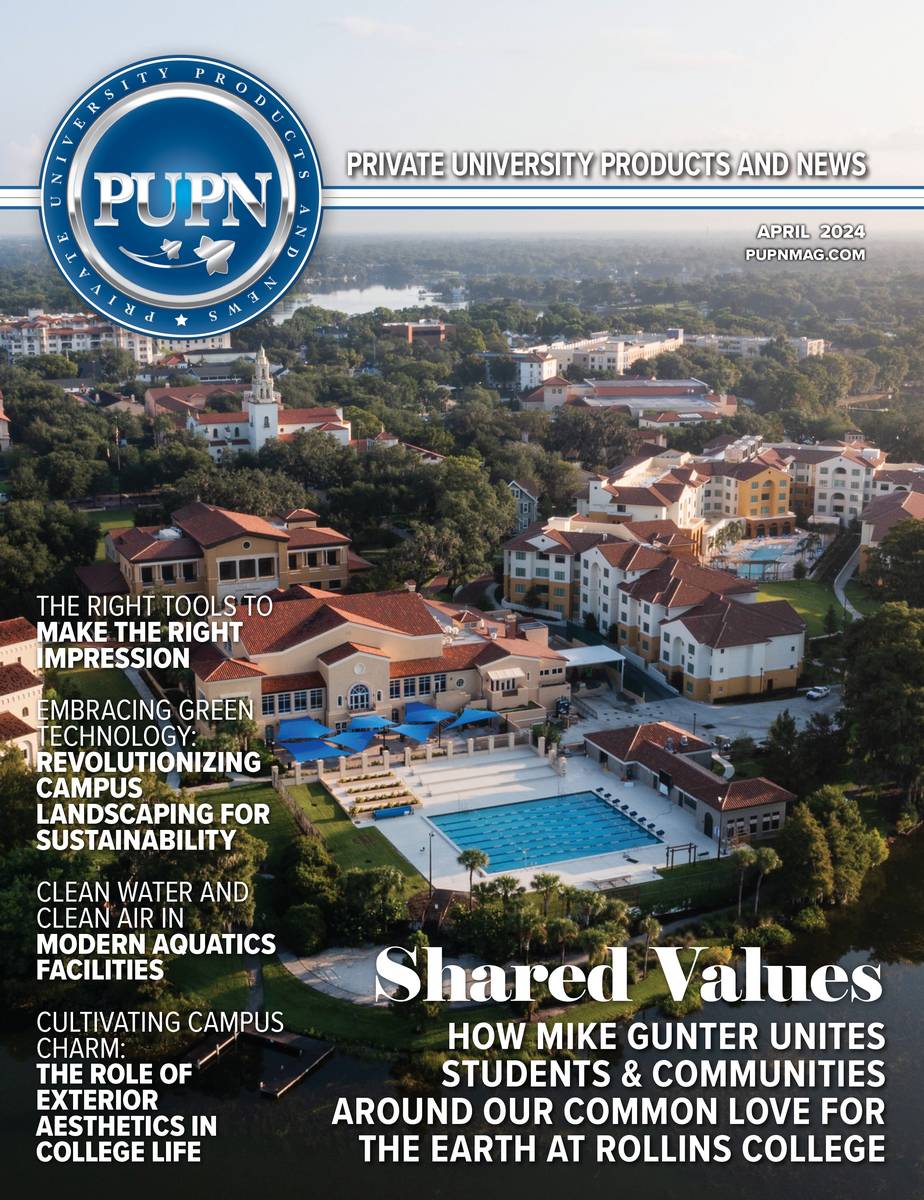As Outdoor Adventure Leadership Program Director, Rosie Hackett ensures that ODAL students graduate with the skills they need to tackle real-world challenges in life and in the workplace.
Building a Program
When Interdisciplinary Studies Program Chair Katie Zanto had a chance to build an Outdoor Adventure Leadership Program in the Interdisciplinary Studies Program, she knew that Hackett was the right person for the challenge, and she notes that Hackett has more than proven her right over the last six years.
With over twenty years of training in creating programs and as an Outward Bound guide, Hackett was an ideal choice. Zanto shares, “Rosie is an inspiring teacher and program visionary. She has a delightful combination of passion, heart, purpose and intention. It has been a joy to collaborate with her and to help her grow and refine the Outdoor Adventure Leadership program.”
Of the initial program, Hackett notes, “I put it together, threw it against the wall, and a lot of students came.” Daryl Teittinen, an instructor for the Outdoor Adventure Leadership Program who works closely with Hackett, calls her “a lightning rod of enthusiasm” who is a wonderful mentor and collaborator, in addition to being an exceptionally hard worker. “We are always scheming how to get the best outcomes from our classes and for our students,” Teittinen notes. “I have been very fortunate to learn from her, and I feel honored to contribute to the program that she started at SNC.”
Even better, Hackett explains, is that they are now attracting only the right students, not just the “this is cool” students. “You don’t last in our program without passion,” Hackett adds, “and a willingness to get dirty.”
Students also have to be curious about learning, or they won’t be able to succeed in an environment that is both academically and physically challenging. Recently, ODAL also revamped their curriculum to focus on skills development up front, moving quickly into medical training. Then, once students have those skills in place, they are moved into a harsh environment for three weeks in Utah-where they are immersed in unfamiliar terrain and forced to apply the lessons they just learned. They also encounter what Hackett calls “real opportunities to lead.” Because students are practicing leadership skills, she notes, they become resourceful and collaborative.
The program consists of an Introduction to Outdoor Skills (backpacking/ winter camping, whitewater rafting, rock climbing and sea kayaking), Wilderness First Responder training, three weeks in Utah for extended field coursework for Fundamentals of Outdoor Leadership, Leadership Practicum, Environmental Interpretation, elective Field courses, and Outdoor Adventure Ethics: Land Management.
Like other programs in outdoor education, ODAL students spend a lot of time in small groups on outdoor adventure; unlike other programs, however, they move beyond field experience for ODAL students to work on their leadership skills via senior projects that require thorough integration of a number of disciplines and service learning within a wider community.
This fusion of internship and independent study allows students to bring the skills they learned in a wilderness setting into the world where they will be skilled in non-profit work, event organization, curriculum design, and business planning. “We’re training in character development and leadership development,” Hackett adds, and she believes these are the types of learning encounters that offer practical leadership experiences that potential employers may most want to see in their new hires.
Self, Community, and Vision/Action
In order to prepare their students, the ODAL program first immerses their students in the outdoors, and the location in Sierra Nevada provides an ideal environment for that. Next, they work on building an ODAL “Sense of Self,” where leadership and character are developed and practiced via outdoor adventure. Students learn technical competence, self-awareness, tolerance for adversity, risk management and decision making, communication skills, expedition behavior, and vision.
Next, they develop an ODAL “Sense of Community” through connections to their learning communities, the natural world, and their local communities via service learning and senior portfolios. Hackett shares, “Part of the potency of our program is the small group dynamic.” Because they are “stuck together” for up to three weeks in the field, they learn to resolve conflict rather than just avoiding it.
Within their small groups, they have a wide variety of backgrounds and abilities. For instance, Hackett notes, there are many students who are already incredible outdoor athletes and returned to college for a degree; then, there are many students “who have never backpacked a day in their lives.” Clearly, group cooperation-including peer mentoring-becomes incredibly important. “A group holds you accountable,” Hackett explains, “and you are accountable to the group.”
Finally, they build an ODAL “Sense of Vision and Action,” which means all students recognize their roles on the planet, dedicate themselves to their part within a larger system, exercise their abilities to plan and perform, and dedicate themselves to doing more through activity and creativity. By facing their own vulnerability and uncertainty, students learn bravery, connection, and creativity. Even more importantly, students ultimately come away with a life-long curiosity to learn. “That’s what we need in our world now,” Hackett adds, “more than knowledge.”
ODAL EAGLES: Experience, Adventure, Group, Leadership, Environment, and Style
One of the first principles of the program is Experience, the idea that students learn to lead by actually leading, reflecting on their experiences, and applying those lessons to the next set of challenges. Citing John Dewey, Hackett notes, “Give the pupils something to do, not something to learn; and the doing is of such a nature as to demand thinking; learning naturally results.”
Next is the principle of Adventure, following the idea that students learn by engaging in challenging situations and taking carefully calculated risks. The next principle is Group, where students are encouraged to learn to lead while engaging with a supportive community. Referencing Dewey again, Hackett shares that education is a social process and education is growth. Rather than education being seen as preparation for life-it is life itself. Next is Leadership, where students have opportunities to practice leadership and put leadership theories into practice.
Another programmatic principle is Environment, where students fully engage the environment and sustainable practices. Citing John Muir, Hackett shares, “A day in the mountain is better than a cartload of books.” Like Thoreau, they are focused on living deliberately, learning what nature has to teach. Finally, they focus on Style, embracing personal leadership styles and characteristics that embrace their passions and strengths while acknowledging weaknesses. Style also addresses the often-repeated 8 P’s of the program’s familiar refrain: “Proper Prior Planning and Preparation Prevents Piss Poor Performance.”
Rules for Life
Katy Lambert, a graduate of ODAL, notes that Hackett often shared two rules with her students, both of which are applicable to “so much more than adventure sports.” The first was the 8 P’s rule, which Lambert says does hold true for all aspects of life and career. The second are the rules for back country travel: (1) stay together, (2) stay together, and 3) stay together. Currently, Lambert is working to create an intentional community by focusing on sustainable building practices and renewable energy sources. Lambert sees Hackett’s rules of back country travel to be instrumental to the success of all of her group projects.
ODAL graduate Savannah Hoover is still benefitting from lessons learned under Hackett’s tutelage. She notes that Hackett taught her that life is never about the easiest route; instead, life is about the grueling tasks you face that attempt to thwart your progress. Life is also about the light found in difficult times. Adding that Hackett will be one of her life-long mentors, Hoover believes her former instructor serves as one of the lights.
Hoover states, “Rosie is an energetic leader with an urge to share the best this life has to offer. She has found a path through this world by always chasing adventure, and her goal is to help others find their path the same way.” As such, she pushes her students, but out of kindness. As Hoover explains, “She already knows what hard work brings and knows you will kick yourself if you opt for the easy route.”
Fellow ODAL graduate Scout Sorcic shares that impression and adds that Hackett is the type of professor who challenges students to improve for themselves, not for a grade or for a test. By highlighting students’ strengths and working with them to manage their weaknesses, Sorcic believes Hackett empowers students through those lessons. “Through ODAL she teaches you self-awareness, perspective, and accountability,” Sorcic adds, “helping you to discover your passions.”
Hackett stresses that graduates of the ODAL program have a wide variety of skills, from relocating a dislocated shoulder to navigating rugged terrain or facilitating a discussion on land ethics; the skills that matter in the “civilized world,” however, are resourcefulness, endurance, and persistence: skills that are honed in the wilderness yet make a world of difference to students’ success in the real world and in life. “We are teaching leadership,” Hackett adds, “using the outdoors as a classroom.”










